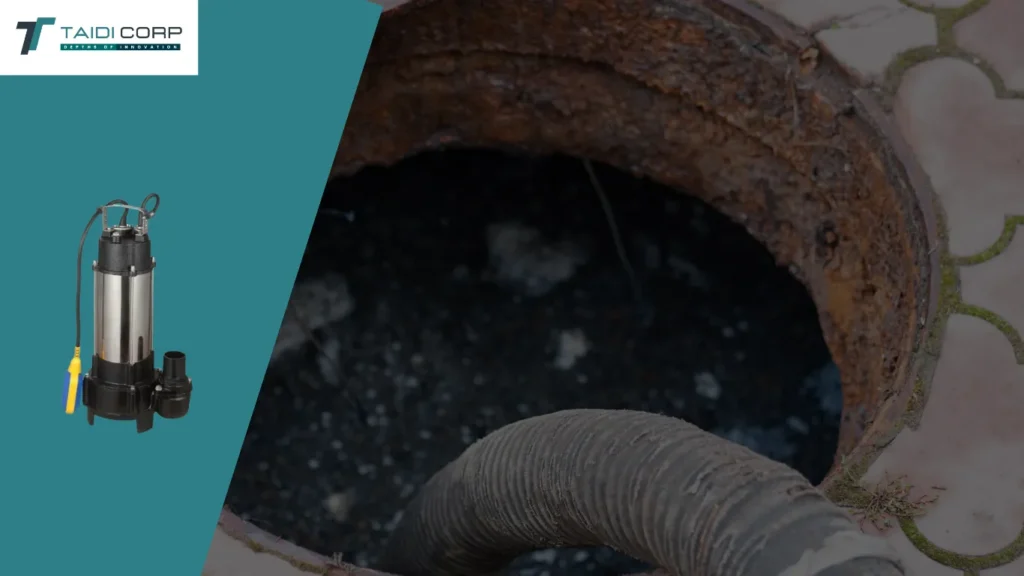
As global emphasis on sustainable living intensifies, homeowners, property managers, and developers are increasingly seeking environmentally responsible solutions for essential systems. One such solution gaining prominence is the utilization of eco-friendly sewage pumps. These advanced systems not only manage wastewater efficiently but also significantly mitigate environmental impact. This comprehensive guide elucidates the operation of eco-friendly sewage pumps, their benefits, and the advantages they hold over traditional pumps.
What are Eco-Friendly Sewage Pumps?
Eco-friendly sewage pumps are state-of-the-art wastewater management systems engineered to minimize environmental impact while delivering optimal performance. Unlike conventional pumps that often entail high energy consumption and utilize non-sustainable materials, eco-friendly alternatives prioritize energy efficiency, renewable energy integration, and environmentally safe materials. These pumps are integral to sustainable wastewater management, ensuring effective operation with a reduced carbon footprint.
Purpose of the Guide
This guide aims to educate environmentally conscious homeowners, property managers, green building enthusiasts, DIY practitioners, and plumbing professionals about the advantages of eco-friendly sewage pumps. By exploring their mechanisms, environmental benefits, and various types, readers will gain valuable insights into how these pumps enhance energy efficiency, lower carbon emissions, and support sustainable living practices.
How Eco-Friendly Sewage Pumps Work
Eco-friendly sewage pumps incorporate advanced technologies and sustainable practices to optimize performance and reduce environmental impact.
Energy-Efficient Motor Design
Eco-friendly sewage pumps are equipped with advanced motor technologies that substantially decrease energy consumption without compromising performance. These motors are meticulously designed to operate more efficiently, ensuring reduced electricity usage for wastewater movement, which results in energy savings and lower utility expenses.
Variable Speed Technology
A hallmark of eco-friendly pumps is variable speed technology. Unlike traditional pumps that operate at a constant speed irrespective of demand, variable speed pumps dynamically adjust their power output based on the actual wastewater load. This adaptive mechanism leads to decreased energy usage and enhanced operational efficiency, ensuring the pump functions only as necessary.
Use of Recyclable and Non-Toxic Materials
Construction of eco-friendly sewage pumps involves the use of recyclable and non-toxic materials. This material selection diminishes environmental impact during both production and disposal phases. By opting for sustainable materials, these pumps facilitate safer end-of-life disposal and promote a circular economy.
Types of Eco-Friendly Sewage Pumps
Eco-friendly sewage pumps are available in various types, each tailored to specific applications and environmental considerations.
Solar-Powered Sewage Pumps
Solar-powered sewage pumps harness solar energy to operate, making them ideal for remote or off-grid locations. By relying on renewable solar energy, these pumps reduce dependence on conventional electricity sources, thereby lowering greenhouse gas emissions and operational costs.
High-Efficiency Submersible Pumps
Designed for both residential and commercial applications, high-efficiency submersible pumps operate with minimal energy consumption. These pumps are optimized to handle substantial wastewater volumes while maintaining low energy usage, presenting a cost-effective and sustainable choice for property owners.
Grinder Pumps with Low-Energy Consumption
Grinder pumps integrated with low-energy consumption features utilize more efficient motors and grinding mechanisms to manage solid waste with reduced power. This efficiency ensures reliable performance while minimizing energy usage and environmental impact.
Key Benefits of Eco-Friendly Sewage Pumps
Opting for eco-friendly sewage pumps offers a multitude of advantages beyond environmental sustainability.
Reduced Energy Consumption
Eco-friendly pumps consume markedly less electricity compared to traditional models. This reduction in energy usage not only leads to decreased utility bills but also diminishes the overall environmental footprint of wastewater management systems.
Lower Carbon Footprint
By leveraging renewable energy sources or enhancing operational efficiency, eco-friendly pumps contribute to lower greenhouse gas emissions. This reduction is pivotal in combating climate change and fostering a healthier environment.
Extended Lifespan and Reduced Maintenance
Many eco-friendly sewage pumps are constructed with durable, high-quality materials that extend their operational lifespan and reduce the necessity for frequent repairs or replacements. This durability translates to lower maintenance costs and minimized operational disruptions over time.
Compliance with Green Building Standards
Incorporating eco-friendly pumps can facilitate the attainment of green building certifications such as LEED (Leadership in Energy and Environmental Design). These certifications are increasingly sought after by developers and property managers committed to demonstrating their dedication to sustainability.
Factors to Consider When Choosing an Eco-Friendly Sewage Pump
Selecting an appropriate eco-friendly sewage pump necessitates careful evaluation of several key factors to ensure it aligns with specific requirements.
Energy Source and Availability
Evaluate whether the property can support solar-powered options or if a high-efficiency electric pump is more pragmatic. The availability of renewable energy sources significantly influences the overall sustainability and operational costs of the pump.
Wastewater Load and Capacity
Ensure that the selected pump can adequately handle the property’s wastewater demands without overloading. An oversized pump may negate energy savings, while an undersized pump may struggle to manage the load effectively.
Installation and Initial Cost
While eco-friendly pumps may entail higher upfront costs, these expenditures are often offset by long-term energy savings and reduced maintenance expenses. It is essential to assess the initial investment against potential financial benefits over the pump’s lifespan.
Environmental Impact of Materials
Prioritize pumps constructed from recyclable materials or those certified for environmentally friendly manufacturing processes. Selecting pumps with a minimal environmental footprint ensures alignment with broader sustainability objectives.
Comparing Eco-Friendly and Traditional Sewage Pumps
Understanding the distinctions between eco-friendly and traditional sewage pumps is crucial for making an informed decision.
Energy Efficiency
Traditional pumps typically operate at full capacity regardless of demand, resulting in higher energy consumption. In contrast, eco-friendly pumps adjust their output based on wastewater load, leading to substantial energy savings.
Performance and Reliability
Eco-friendly pumps are engineered to perform with the same reliability as traditional models while offering enhanced energy efficiency. Their advanced technologies ensure consistent performance without the drawbacks of increased energy usage.
Maintenance and Lifespan
Both pump types require regular maintenance; however, eco-friendly pumps often feature fewer moving parts and are constructed from more durable materials. This design reduces wear and tear, resulting in longer lifespans and fewer maintenance interventions.
Cost Analysis: Are Eco-Friendly Sewage Pumps Worth the Investment?
Investing in eco-friendly sewage pumps can be financially advantageous over the long term.
Upfront Cost vs. Long-Term Savings
Although the initial purchase and installation costs of eco-friendly pumps may be higher, these expenses are typically offset by long-term savings on energy bills and reduced maintenance costs. Over time, the financial benefits can surpass the initial investment.
ROI (Return on Investment)
Calculating the expected payback period based on energy savings and potential tax incentives or rebates for using energy-efficient equipment can demonstrate a favorable return on investment. Many regions offer incentives that further enhance the financial viability of eco-friendly pumps.
Environmental and Community Impact
Beyond personal savings, eco-friendly pumps contribute to broader environmental and community benefits. Reducing energy consumption and greenhouse gas emissions aids in creating a more sustainable environment, aligning with community and societal sustainability goals.
Tips for Maximizing the Benefits of Eco-Friendly Sewage Pumps
To fully capitalize on the advantages of eco-friendly sewage pumps, consider the following strategies:
Regular Maintenance
Ensure optimal pump performance by scheduling routine inspections and cleaning. Regular maintenance helps prevent issues that could diminish the pump’s effectiveness and lifespan.
Optimize Energy Use
Integrate the pump with other energy-saving devices such as smart controllers or solar batteries. These integrations can further reduce energy consumption and enhance the overall sustainability of the wastewater management system.
Monitor and Adjust
Employ monitoring systems to track the pump’s performance and make necessary adjustments. Continuous monitoring allows for real-time optimization, ensuring the pump operates at peak efficiency.
When to Consider an Eco-Friendly Sewage Pump for Your Property
Eco-friendly sewage pumps are suitable for various scenarios where sustainability and efficiency are paramount.
New Construction or Renovations
Eco-friendly pumps are ideal for projects aimed at achieving green building certifications or enhancing energy efficiency. Incorporating these pumps during construction or renovation ensures seamless integration into sustainable building designs.
Off-Grid or Remote Locations
In areas where traditional power sources are unreliable or unavailable, solar-powered sewage pumps offer a dependable and sustainable solution. These pumps provide reliable wastewater management without reliance on conventional electricity.
Environmental Impact Reduction
Individuals or businesses seeking to lower their environmental footprint as part of a broader sustainability strategy will find eco-friendly pumps to be a valuable addition. These pumps contribute to reducing energy consumption and greenhouse gas emissions, supporting comprehensive environmental objectives.
Conclusion
Eco-friendly sewage pumps represent a significant advancement in sustainable wastewater management. By selecting these energy-efficient and environmentally responsible systems, homeowners, property managers, and developers can achieve reduced energy costs, lower carbon footprints, and longer-lasting equipment. Whether undertaking new construction projects, upgrading existing systems, or striving to minimize environmental impact, eco-friendly sewage pumps offer a reliable and sustainable solution.
Explore eco-friendly sewage pump options today and consult with a professional to identify the optimal solution for your requirements. For a comprehensive range of eco-friendly sewage pumps, visit our All Sewage Pump Series at TaidiCorp.
By transitioning to eco-friendly sewage pumps, you enhance the efficiency and reliability of your wastewater management system while contributing to a more sustainable future. Take the initial step towards greener living by exploring sustainable sewage pump options today.
